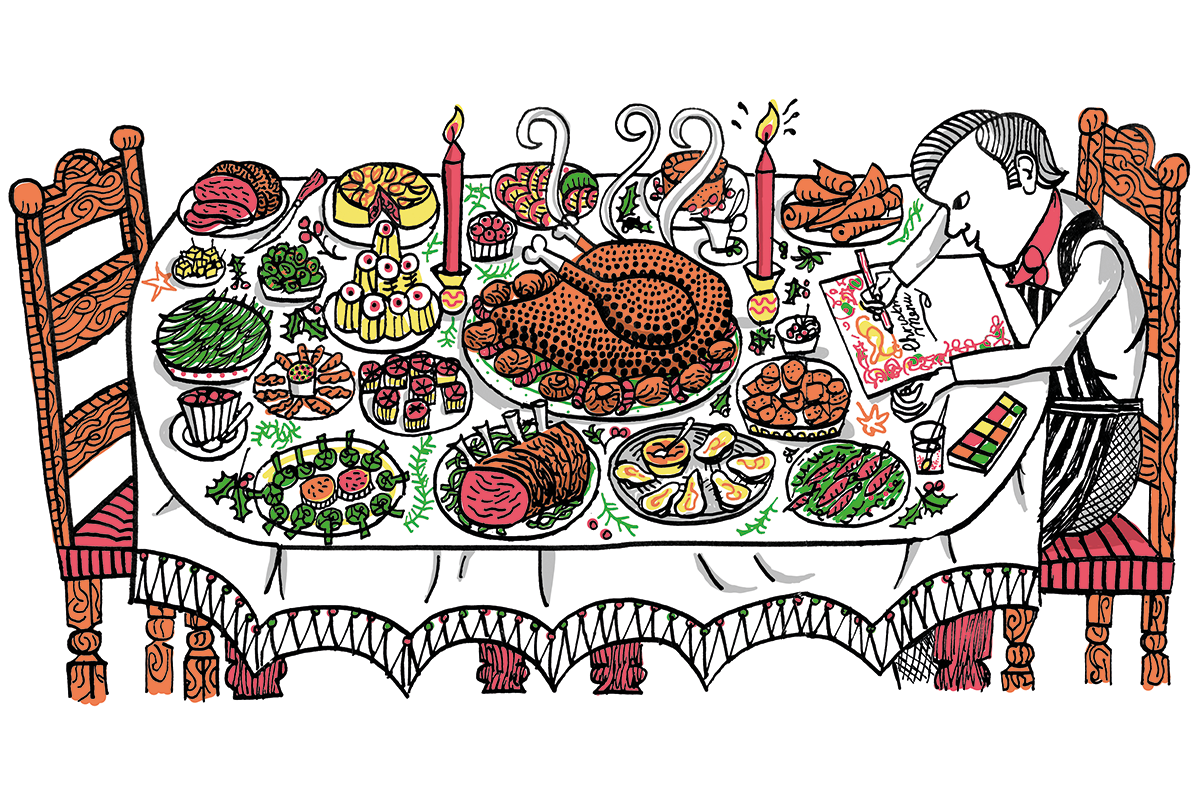This is the forty-seventh year in a row that I have written a column for The Spectator’s Christmas issue. It began when I was a young forty-year-old, and is at present being written by an eighty-seven-year-old vet. The years have passed in an eye-blink. Recently I asked myself why do bad things happen to good people? (Well, not very good people, but well-intentioned.) This question has occupied thinkers throughout the ages. People who do not believe in a good God should logically have no problem with the existence of evil. In my case, I very much believe in God and it has served me well during a very long and very happy life.
Recently, however, something bad happened to me in a Swiss village court of law, which led me to suspend writing my regular column. Then something extraordinary took place. My wife Alexandra, a devout Catholic whom I married fifty-two years ago when she was young and didn’t know what she was doing, quoted the Bible to me: “Blessed are they which are persecuted for righteousness’ sake.” She also reminded me of the book of Job. God must have had a reason to punish Job so cruelly, yet poor old Job was innocent. God did it to illustrate his unquestionable power and that his ways are never understood by mortals. “We have two beautiful children and four even more beautiful grandchildren,” she said. “You’re healthy and well-off. What else do you want?”
I very much believe in God and it has served me well during a very long and very happy life
She was hard to argue with — she was not born a Serene Highness for nothing — and she has convinced me not to hate or ask why. Mind you, I’m appealing but it takes a long time.
Now let’s get back to Christmas. We live in a world where people exaggerate the value of entertainers and professional athletes while neglecting spiritual heroes. Sometimes I think anti-Christian forces take Jesus more seriously than most nominal Christians do. People in the western world — including many who consider themselves Christians — have turned Christmas into a bland holiday of mere niceness. Ironically, the natural reaction to Jesus is to reject him and he said so himself. He predicted his own death and told his followers they must expect persecution too. Jesus preached love and mercy, but also warned of eternal damnation, insulted the Pharisees, and rebuked people who adored him in words that can still make us cringe.
He was no con man. He accompanied his words with miracles, and the forces ranged against him disputed his words rather than the miracles. Now his modern enemies don’t even try to dispute whether or not the miracles happened — but simply assume that they didn’t. The fact that large crowds witnessed the blind seeing, the deaf hearing and the cripples walking convinces those of us who believe in his truth.
And yet there is a growing army of unbelievers, who say — as sceptics have done for centuries — that this is all kids’ stuff. Some go further: a benevolent God, they maintain, would never allow things like war and the premature deaths of millions. How could a loving God permit such gratuitous ruin? Surely any rational human being is bound to think that natural disasters which kill innocents are proof of the non-existence of a good God.
And yet, the miracle of birth alone proves otherwise. As does the satisfaction derived from doing something good for others, a very rare thing these days. Mindless violence is now part of western culture, as are anti-Christian beliefs.
Crusading atheism has become the banner under which many so-called thinking people march. It separates the men from foolish boys and so on. Articulate secularists, however, have a problem: the Enlightenment story does not add up. As religion gave way to science, parochialism and tribal allegiance were replaced by cosmopolitanism and individualism. Top-down command systems were out, separation of church and state was in. And what did that bring us? Millions and millions of dead from wars, especially during the twentieth century. And the big causes of these wars had little to do with religion and a lot to do with secularism.
Science is a blessing, but has not managed to replace religion where spirituality is concerned — and the great scientists are among the greatest of believers. Many churches are empty in Britain because of the secular teachings of the Church of England. Try getting into a Czech church on Christmas Eve, or a Greek village one. From Plato and Aristotle to Darwin and Einstein, God was a reality. The West — and America in particular — is suffering from a culture of self-absorption and self-promotion.
And now it’s time. After forty-seven years, I am taking a break. I want to wish every Spectator reader a very happy Christmas, but I have run out of room to mention all the kind messages I’ve received. I will only mention a very few whose kindnesses I shall not soon forget: Leopold and Debbie Bismarck, Willy Shawcross, Melissa Kite, Charles Moore, Douglas Murray, Bruce Anderson, Charlie Glass, Rosie Chomondeley, Robin Birley and Rachel Johnson — thank you all and see you soon.
This article was originally published in The Spectator’s UK magazine. Subscribe to the World edition here.


























Leave a Reply